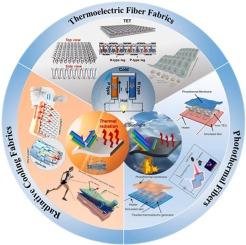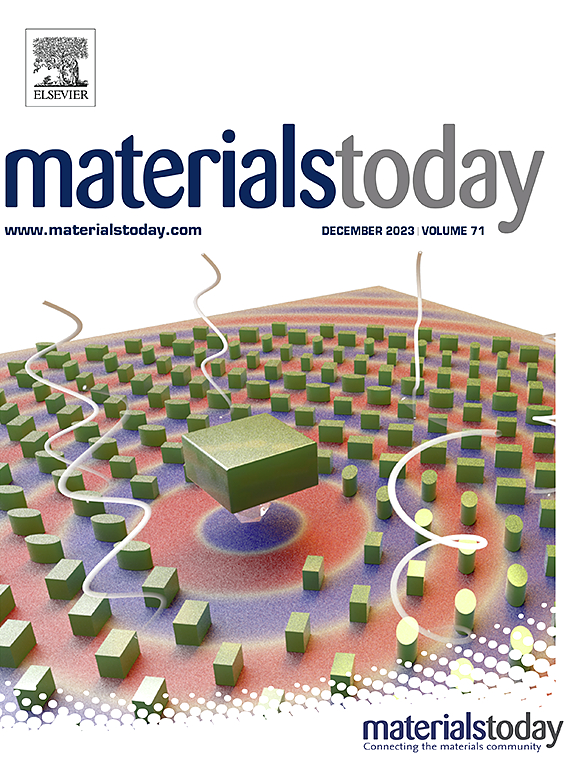Research progress in flexible solar thermoelectric devices
IF 22
1区 材料科学
Q1 MATERIALS SCIENCE, MULTIDISCIPLINARY
引用次数: 0
Abstract
Effective energy harvesting and conversion from environmental sources or the human body, such as the thermoelectric conversion of heat into affordable and sustainable electricity, offers a stable and continuous energy supply for smart wearables and Internet of Things (IoTs) without relying on mechanical components or generating greenhouse gases. However, scaling up the production of thermoelectric fabrics and integrating thermal management for high-efficiency electricity generation present significant challenges. To address this, there is an urgent need to explore the rational design and scalable preparation of FSTEDs. In this review, we provide a comprehensive overview of recent advancements in radiation-modulating fibers, thermoelectric textiles, and FSTEDs, focusing on materials design principles, preparation methods, performance regulation, and wearable applications. Furthermore, we summarize the challenges currently faced by solar radiation fibers and flexible light-thermal-electric conversion devices, aiming to stimulate further research in both academia and industry. Our timely interpretation of FSTEDs underscores their potential for cost-effective, scalable, and high-performance energy harvesting and conversion in smart wearables.

柔性太阳能热电器件的研究进展
从环境源或人体中有效地收集和转换能量,例如热电将热量转化为可负担得起的可持续电力,为智能可穿戴设备和物联网(iot)提供稳定和持续的能源供应,而不依赖机械部件或产生温室气体。然而,扩大热电织物的生产规模和集成热管理以实现高效发电面临着重大挑战。为了解决这个问题,迫切需要探索fsted的合理设计和可扩展制备。本文综述了辐射调制纤维、热电纺织品和fsted的最新进展,重点介绍了材料设计原理、制备方法、性能调节和可穿戴应用。此外,我们总结了目前太阳辐射光纤和柔性光热电转换装置面临的挑战,旨在促进学术界和工业界的进一步研究。我们对fsted的及时解读强调了它们在智能可穿戴设备中具有成本效益、可扩展和高性能的能量收集和转换潜力。
本文章由计算机程序翻译,如有差异,请以英文原文为准。
求助全文
约1分钟内获得全文
求助全文
来源期刊

Materials Today
工程技术-材料科学:综合
CiteScore
36.30
自引率
1.20%
发文量
237
审稿时长
23 days
期刊介绍:
Materials Today is the leading journal in the Materials Today family, focusing on the latest and most impactful work in the materials science community. With a reputation for excellence in news and reviews, the journal has now expanded its coverage to include original research and aims to be at the forefront of the field.
We welcome comprehensive articles, short communications, and review articles from established leaders in the rapidly evolving fields of materials science and related disciplines. We strive to provide authors with rigorous peer review, fast publication, and maximum exposure for their work. While we only accept the most significant manuscripts, our speedy evaluation process ensures that there are no unnecessary publication delays.
 求助内容:
求助内容: 应助结果提醒方式:
应助结果提醒方式:


